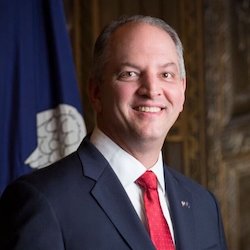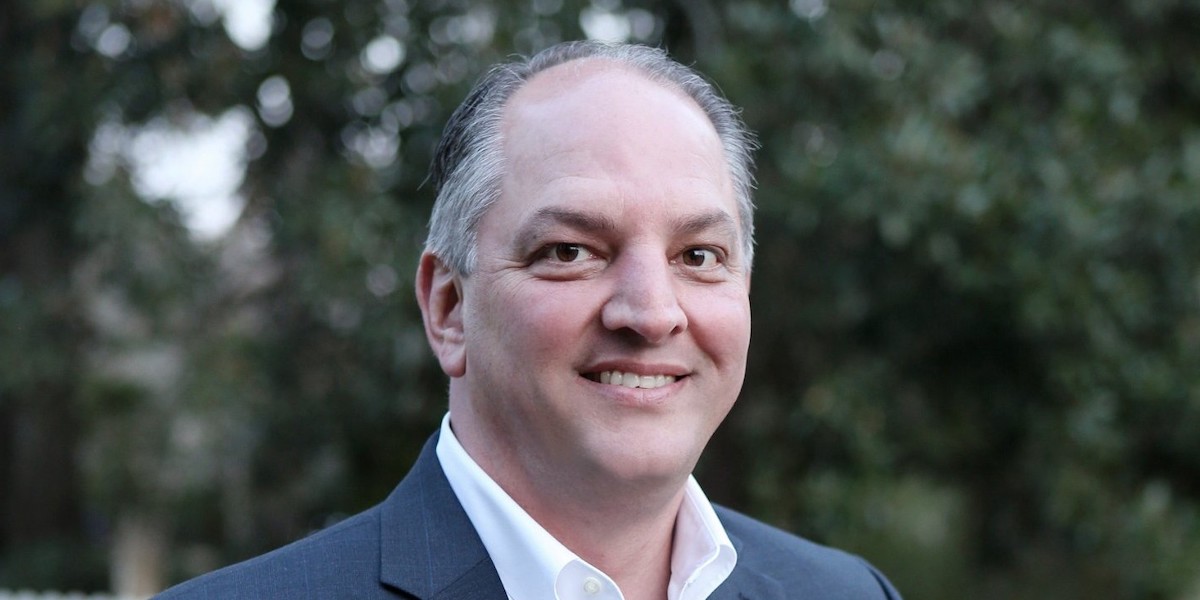
Washington, D.C., April 2 – While 111,804 jobs were gained by people with disabilities, 2,240 went to Louisianans with disabilities. The newly published 2018 Annual Disability Statistics Compendium shows there are 361,642 working-age (18-64) people with disabilities living in Louisiana. Out of that number, only 122,683 have jobs. That means that the Bayou State has a 33.9 percent disability employment rate. Further analysis by the nonpartisan advocacy group RespectAbility shows that Louisiana now ranks 40th out of the 50 states for disability employment.
Gov. John Bel Edwards, who recently kicked off his reelection campaign, has worked hard to make his state a better place for his constituents with disabilities. In a proclamation released in October to celebrate Disability Employment Awareness Month, Gov. Edwards said that “When we diversify our workforce, we create opportunities for growth and improvement – not just for those with disabilities, but for everyone.” He went on to add that “Workplaces who welcome of the talents of all people, including people with disabilities, are a critical part of our efforts to build an inclusive community and strong economy.”
Early in 2018, Gov. Edwards signed an executive order creating a “State as a Model Employer Task Force” intended to “develop policies and strategies to improve within state government the rate of hiring, recruitment and retention of Louisianans with disabilities.” That Task Force has finalized a wide list of recommendations including a dedicated timeline and goals for hiring employees with disabilities as well as connections to “institutions of higher education for recruitment, retention, accommodations, and accessibility for persons with disabilities.” The Governor’s Office of Disability Affairs (GODA) is charged with coordinating critical policies and programs to empower Louisianans with disabilities.
“Our nation was founded on the principle that anyone who works hard should be able to get ahead in life,” said Hon. Steve Bartlett, current Chairman of RespectAbility, who co-authored the Americans with Disabilities Act when he was in Congress. “People with disabilities deserve the opportunity to earn an income and achieve independence, just like anyone else.”
A National Issue
Beyond Louisiana, how is the workforce changing for people with disabilities? What is driving these changes? The answer is simple. According to Vincenzo Piscopo of the Coca-Cola Company: “People with disabilities bring a unique skill set that it is very valuable for companies.” He went on to add, “As it relates to employment and competitiveness in the workplace, we have to stop thinking of disability as a liability and start thinking of it as an asset.”
Brand-name companies such as JP Morgan Chase, Coca-Cola, Ernst & Young, IBM, Walgreen’s, Starbucks, CVS and Microsoft show people with disabilities are successful employees. These companies also know that these workers improve the bottom line. “People with disabilities bring unique characteristics and talents to the workplace,” said RespectAbility President Jennifer Laszlo Mizrahi. “Hiring people with disabilities is a win-win-win for employers, people with disabilities and consumers alike.”
As more companies hire employees with disabilities, conversations are shifting to focus on inclusion. “Disability inclusion is no longer about automatic doors, curb cuts, ramps, and legislation,” says Jim Sinocchi, Head of the Office of Disability Inclusion at JP Morgan Chase. “Today, the new era of disability inclusion is about “assimilation” – hiring professionals with disabilities into the robust culture of the firm.”
According to the Census Bureau, there are more than 56 million Americans living with a disability. Disabilities include visible conditions such as spinal cord injuries, visual impairments or hearing loss and invisible disabilities such as learning disabilities, mental health or Autism.
An Election Issue
Voter research conducted by RespectAbility shows how disability issues connect to all aspects of American life. “Fully three-quarters of likely voters either have a disability themselves or have a family member or a close friend with disabilities,” said former Representative and Dallas Mayor Steve Bartlett. “People with disabilities are politically active swing voters, and candidates should take note of the important issues they care about.”
As 2019 moves into 2020 and the political campaign season heats up, continuing job growth for people with disabilities will be a crucial indicator of the health of the American economy.

Be First to Comment